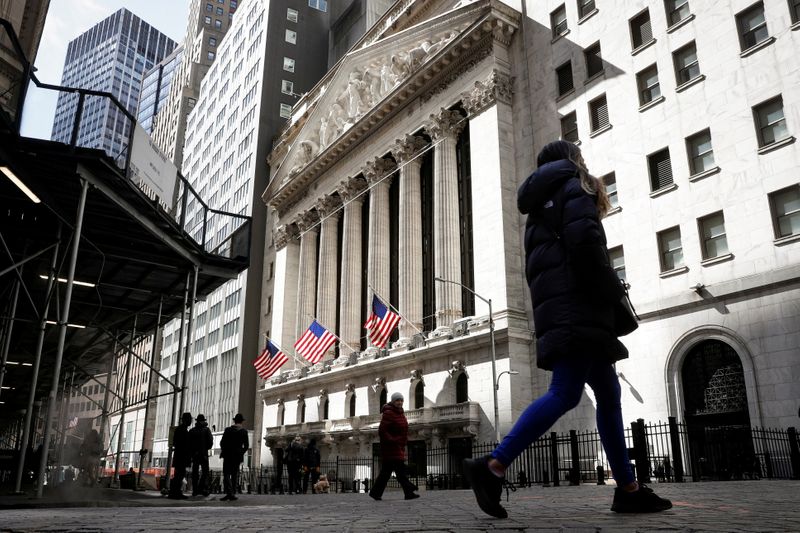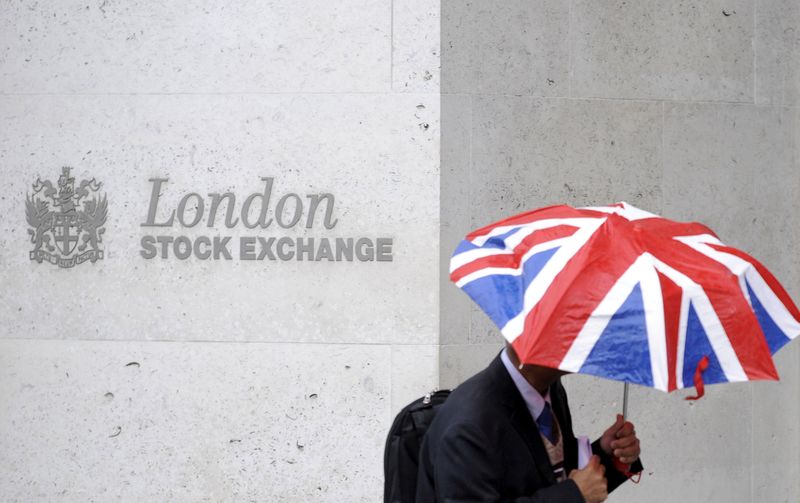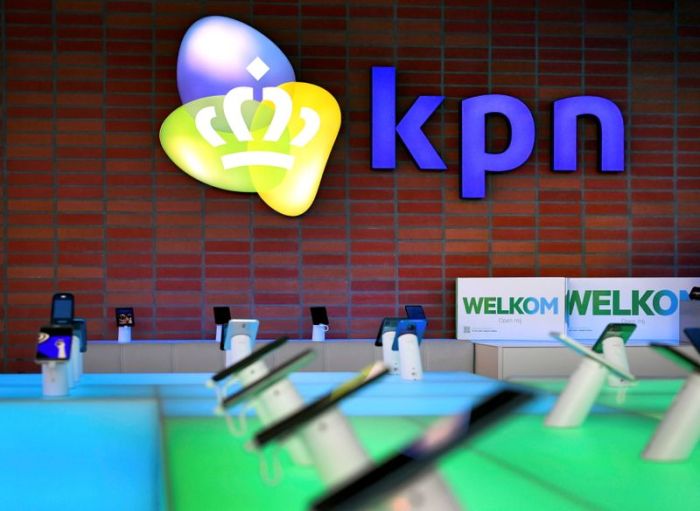NEW YORK/LONDON (Reuters) – Gold prices rose and a gauge of global equity markets closed not far from a record high on Monday as investors bet corporate results and U.S. data will underscore the strength of the economy’s rebound from pandemic-induced shutdowns.
The dollar eased against a basket of currencies as the yield on Treasury bonds retreated on data showing U.S. manufacturing activity grew at a slower pace in April.
The yield on the 10-year Treasury note traded 2.8 basis points lower at 1.6029% after a shortage of inputs likely restrained factory output as massive fiscal stimulus and rising COVID-19 vaccinations unleashed pent-up demand.
The dollar index slipped 0.3%, making gold more affordable for holders of other currencies, while sliding Treasury yields reduced the opportunity cost of holding non-interest-bearing gold.
In Europe, stocks closed higher after the European Commission outlined plans to loosen COVID-19 restrictions on tourism. Strong factory and retails sales data and a robust earnings season added to investor optimism.
The pan-European STOXX 600 index closed up 0.6% and MSCI’s benchmark for global equity markets rose 0.2% to close at 703.31, about 0.7% shy of a record closing high hit last week.
On Wall Street, the Dow Jones Industrial Average rose 0.7% and the S&P 500 gained 0.27%. The Nasdaq Composite dropped 0.48%.
A slide in high-flying tech and related stocks – including Amazon.com Inc <AMZN.O, Tesla Inc and Salesforce.com Inc. – pressured the Nasdaq, as growth-oriented shares slid and cyclical stocks sensitive to the recovery rose.
Markets in China, Japan and Britain were closed for public holidays, keeping trading volumes thin.
Earnings for S&P 500 companies are expected to rise 46.3% in the first quarter year-over-year, almost double the rate forecast at the start of April, Refinitiv IBES data shows.
Of the 303 companies that have reported so far, 87.1% have beat analyst estimates, or more than 20 percentage points above the long-term average, Refinitiv said.
German retail sales data for March came in far better than expected, underlining that a U.S.-led economic rebound is now gaining traction elsewhere.
But some economists think businesses may be getting ahead of themselves and are being influenced more by the success and speed of COVID-19 vaccination rollouts.
“The data has been unrealistically strong in recent months – while the underlying economy is performing very well, manufacturing growth is not quite at the stratospheric levels the surveys imply,” said UBS economist Paul Donovan.
A busy week for U.S. economic data is expected to show resounding strength, particularly for the ISM manufacturing survey and April payrolls.
Euro zone government bond yields reversed earlier gains to track U.S. Treasuries lower on the U.S. manufacturing activity.
German benchmark 10-year yields fell 0.3 basis point to -.207%, rising earlier to their highest at -0.162% since March 2020.
The rise in Germany yields accelerated last week when German inflation advanced further above the European Central Bank’s target, and U.S. data showed economic growth sped up in the first quarter.
The euro rose 0.35% to $1.206 and the Japanese yen strengthened 0.14% versus the greenback at 109.10 per dollar.
Cryptocurrency ether scaled a new record high of $3,342.81 as investors bet on increased adoption. Its 2021 gain of 356% has eclipsed that of bigger rival bitcoin.
Oil rose more than 1% as Chinese economic figures and the U.S. vaccination rate pointed to a strong rebound in demand in the world’s two largest economies.
Brent crude futures settled up 80 cents at $67.56 a barrel. U.S. crude futures rose 91 cents to settle at $64.49 a barrel.
U.S. gold futures settled 1.4% higher at$1,791.80 an ounce.
(Reporting by Herbert Lash; additional reporting by Wayne Cole in Sydney and Yoruk Bahceli in Amsterdam; editing by Will Dunham, Lisa Shumaker and Jonathan Oatis)
























